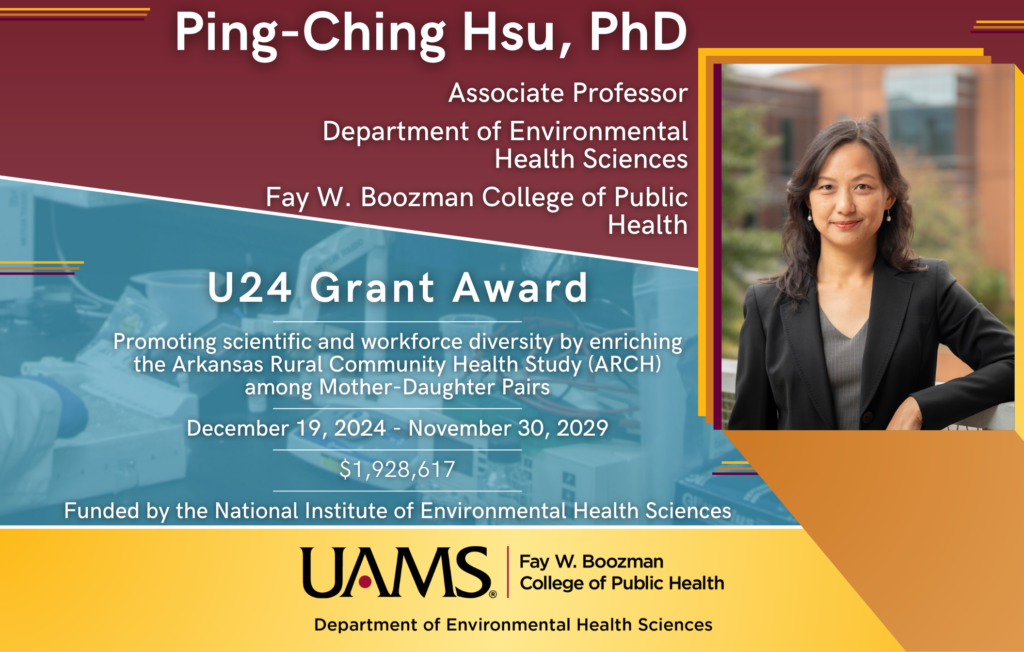
Dr. Ping-Ching recently secured a substantial U24 grant from National Institute of Environmental Health Sciences for her project titled Promoting scientific and workforce diversity by enriching the Arkansas Rural Community Health Study (ARCH) among Mother-Daughter Pairs. The five year grant totals $1.9 million dollars and focuses on the following specific aims.
Aim 1. Enrich ARCH cohort maintenance and resource infrastructure. Continue the active follow-up effort targeting ARCH participants within mother–daughter pairs, with linkages to the Environmental Protection Agency/US Geological Survey data, Area Deprivation Index, medical records, AR Central Cancer Registry on all cancer diagnosis, and All-payer Claims Database for info on treatment and health outcomes.
Aim 2. Collect longitudinal sample and exposure data on mother–daughter pairs. Mother–daughter pairs will be recontacted for additional biospecimen and exposure survey with the potential to examine individual levels (e.g., heavy metals, pesticides, chemicals) and mediators of disease onset (e.g., genetics, methylome, immune function) for future research opportunities.
Aim 3. Develop and implement an interactive dashboard to promote cohort data management and sharing. A robust bioinformatics pipeline and interactive end-user dashboard will be developed for users to view data geocentrically and to compare user-defined populations. This dashboard will facilitate broader use of data and sample resources, hypothesis generation, result dissemination, and will serve as an entry point for biospecimen requests.
